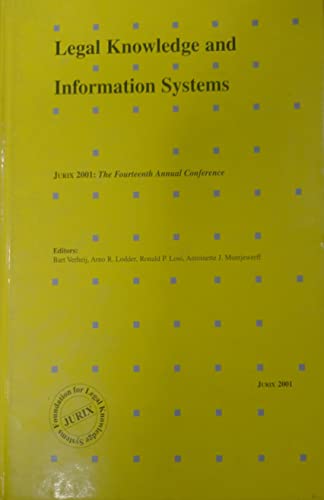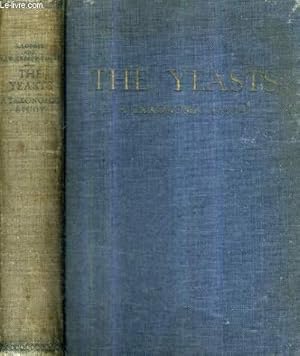lodder a r (14 Ergebnisse)
Suchfilter
Produktart
- Alle Product Types
- Bücher (14)
- Magazine & Zeitschriften (Keine weiteren Ergebnisse entsprechen dieser Verfeinerung)
- Comics (Keine weiteren Ergebnisse entsprechen dieser Verfeinerung)
- Noten (Keine weiteren Ergebnisse entsprechen dieser Verfeinerung)
- Kunst, Grafik & Poster (Keine weiteren Ergebnisse entsprechen dieser Verfeinerung)
- Fotografien (Keine weiteren Ergebnisse entsprechen dieser Verfeinerung)
- Karten (Keine weiteren Ergebnisse entsprechen dieser Verfeinerung)
- Manuskripte & Papierantiquitäten (Keine weiteren Ergebnisse entsprechen dieser Verfeinerung)
Zustand Mehr dazu
- Neu (5)
- Wie Neu, Sehr Gut oder Gut Bis Sehr Gut (4)
- Gut oder Befriedigend (5)
- Ausreichend oder Schlecht (Keine weiteren Ergebnisse entsprechen dieser Verfeinerung)
- Wie beschrieben (Keine weiteren Ergebnisse entsprechen dieser Verfeinerung)
Einband
Weitere Eigenschaften
- Erstausgabe (Keine weiteren Ergebnisse entsprechen dieser Verfeinerung)
- Signiert (Keine weiteren Ergebnisse entsprechen dieser Verfeinerung)
- Schutzumschlag (Keine weiteren Ergebnisse entsprechen dieser Verfeinerung)
- Angebotsfoto (6)
Sprache (3)
Gratisversand
- Kostenloser Versand nach USA (Keine weiteren Ergebnisse entsprechen dieser Verfeinerung)
Land des Verkäufers
Verkäuferbewertung
-
Eu Regulation of E-Commerce: A Commentary (Elgar Commentaries Series)
Sprache: Englisch
Verlag: Edward Elgar Publishing Ltd, 2017
ISBN 10: 1785369334 ISBN 13: 9781785369339
Anbieter: Anybook.com, Lincoln, Vereinigtes Königreich
EUR 24,90
EUR 15,36 shipping
Versand von Vereinigtes Königreich nach USAAnzahl: 1 verfügbar
In den WarenkorbZustand: Good. This is an ex-library book and may have the usual library/used-book markings inside.This book has hardback covers. In good all round condition. No dust jacket. Library sticker on front cover. Please note the Image in this listing is a stock photo and may not match the covers of the actual item,1000grams, ISBN:9781785369339.
-
Legal Knowledge and Information Systems. JURIX 2001:The Fourteenth Annual International Conference.
Anbieter: Kloof Booksellers & Scientia Verlag, Amsterdam, Niederlande
Zustand: as new. Amsterdam : IOS Press, 2001. Hardcover. 150 pp. (Frontiers in Artificial Intelligence and Applications, 70). - This volume contains the proceedings of the fourteenth JURIX conference, held December 13-14 2001 at the University of Amsterdam. The Foundation for Legal Knowledge Based Systems (JURIX) is a forum for research in law and computer science. Since 1988, JURIX has organized annual international conferences on research in the field. Topics addressed range from the theoretical (such as the modelling of the law and legal reasoning) to the practical (such as the design of systems that support legal decision making and teaching). Condition : as new copy. ISBN 9781586032012. Keywords : RECHT, philosophy of law.
-
Zustand: Fine. 210 pp., Hardcover, embossment stamp to front free endpaper, else fine. - If you are reading this, this item is actually (physically) in our stock and ready for shipment once ordered. We are not bookjackers. Buyer is responsible for any additional duties, taxes, or fees required by recipient's country.
-
2017-2018 (Wettenbundel Internetrecht 2017-2018)
Sprache: Niederländisch
Verlag: Uitgeverij Kluwer BV, 2017
ISBN 10: 9013145906 ISBN 13: 9789013145908
Anbieter: Mooney's bookstore, Den Helder, Niederlande
Zustand: Very good.
-
IT support of the judiciary in Europe.
ISBN 10: 9012092841 ISBN 13: 9789012092845
Anbieter: Kloof Booksellers & Scientia Verlag, Amsterdam, Niederlande
Zustand: good. Den Haag: Sdu Uitgevers, 2001. Paperback. 145 p. ill. (Nationaal programma Informatietechnologie en Recht, ITeR, 43). Met samenvatting in het Nederlands. Ticket on spine. Library stamps. Condition : good copy. ISBN 9789012092845. Keywords : RECHT, informaticarecht, IT law.
-
2017-2018 (Wettenbundel Internetrecht 2017-2018)
Sprache: Niederländisch
Verlag: Uitgeverij Kluwer BV, 2017
ISBN 10: 9013145906 ISBN 13: 9789013145908
Anbieter: Mooney's bookstore, Den Helder, Niederlande
Zustand: Very good.
-
JURIX 2001 - The Fourteenth Annual International Conference: v. 70 (Frontiers in Artificial Intelligence and Applications) [Hardcover] Verheij, B.; etc.; Lodder, A.R.; Loui, R.P. and Muntjewerff, A.
Anbieter: Hay-on-Wye Booksellers, Hay-on-Wye, HEREF, Vereinigtes Königreich
EUR 58,54
EUR 74,52 shipping
Versand von Vereinigtes Königreich nach USAAnzahl: 1 verfügbar
In den WarenkorbZustand: As New.
-
EUR 114,16
EUR 48,99 shipping
Versand von Deutschland nach USAAnzahl: Mehr als 20 verfügbar
In den WarenkorbZustand: New.
-
DiaLaw
Sprache: Englisch
Verlag: Springer Netherlands, Springer Netherlands Jul 1999, 1999
ISBN 10: 0792358309 ISBN 13: 9780792358305
Anbieter: buchversandmimpf2000, Emtmannsberg, BAYE, Deutschland
Buch. Zustand: Neu. Neuware -This book is a revised version of my dissertation 'DiaLaw - on legal th justification and dialog games' that I defended on June 5 1998 at the Universiteit Maastricht. The chapters 1, 4 & 5 (now: 1, 5 & 6) of my dissertation have remained largely unaltered. In chapter 2 I added explicitly the distinction between constructing legal justification and reconstructing it, and tried to elucidate the differences (and similarities) between the product and process of justification. Chapter 3 is divided into two chapters: one on the general characteristics of DiaLaw (now: chapter 3), and the other on specific, legal characteristics of DiaLaw (now: chapter 4). In order to improve readability, all rules in these chapters have been rewritten considerably. The section on the implementation of DiaLaw is moved to the appendix. In chapter 7 (the former chapter 6), a discussion of the notions 'procedural' and 'structural' arguments is added, and different layers in argumentation models are discussed. Finally, in chapter 8 (the former chapter 7) is added a recapitulation of my view on legal justification, and a discussion on the future use in legal practice of dialog models that represent argumentation in a natural way. The main thesis has remained unaltered: legal justification should be modeled as a procedural, dialogical model in which not only products of argumentation are allowed, but, even in formal models, rhetorical, psychological aspects of argument are dealt with.Springer Verlag GmbH, Tiergartenstr. 17, 69121 Heidelberg 216 pp. Englisch.
-
DiaLaw
Sprache: Englisch
Verlag: Springer Netherlands, Springer Netherlands Nov 2001, 2001
ISBN 10: 1402002874 ISBN 13: 9781402002878
Anbieter: buchversandmimpf2000, Emtmannsberg, BAYE, Deutschland
Taschenbuch. Zustand: Neu. Neuware -This book is a revised version of my dissertation 'DiaLaw - on legal th justification and dialog games' that I defended on June 5 1998 at the Universiteit Maastricht. The chapters 1, 4 & 5 (now: 1, 5 & 6) of my dissertation have remained largely unaltered. In chapter 2 I added explicitly the distinction between constructing legal justification and reconstructing it, and tried to elucidate the differences (and similarities) between the product and process of justification. Chapter 3 is divided into two chapters: one on the general characteristics of DiaLaw (now: chapter 3), and the other on specific, legal characteristics of DiaLaw (now: chapter 4). In order to improve readability, all rules in these chapters have been rewritten considerably. The section on the implementation of DiaLaw is moved to the appendix. In chapter 7 (the former chapter 6), a discussion of the notions 'procedural' and 'structural' arguments is added, and different layers in argumentation models are discussed. Finally, in chapter 8 (the former chapter 7) is added a recapitulation of my view on legal justification, and a discussion on the future use in legal practice of dialog models that represent argumentation in a natural way. The main thesis has remained unaltered: legal justification should be modeled as a procedural, dialogical model in which not only products of argumentation are allowed, but, even in formal models, rhetorical, psychological aspects of argument are dealt with.Springer Verlag GmbH, Tiergartenstr. 17, 69121 Heidelberg 212 pp. Englisch.
-
DiaLaw : On Legal Justification and Dialogical Models of Argumentation
Sprache: Englisch
Verlag: Springer Netherlands, Springer Netherlands, 2001
ISBN 10: 1402002874 ISBN 13: 9781402002878
Anbieter: AHA-BUCH GmbH, Einbeck, Deutschland
Taschenbuch. Zustand: Neu. Druck auf Anfrage Neuware - Printed after ordering - This book is a revised version of my dissertation 'DiaLaw - on legal th justification and dialog games' that I defended on June 5 1998 at the Universiteit Maastricht. The chapters 1, 4 & 5 (now: 1, 5 & 6) of my dissertation have remained largely unaltered. In chapter 2 I added explicitly the distinction between constructing legal justification and reconstructing it, and tried to elucidate the differences (and similarities) between the product and process of justification. Chapter 3 is divided into two chapters: one on the general characteristics of DiaLaw (now: chapter 3), and the other on specific, legal characteristics of DiaLaw (now: chapter 4). In order to improve readability, all rules in these chapters have been rewritten considerably. The section on the implementation of DiaLaw is moved to the appendix. In chapter 7 (the former chapter 6), a discussion of the notions 'procedural' and 'structural' arguments is added, and different layers in argumentation models are discussed. Finally, in chapter 8 (the former chapter 7) is added a recapitulation of my view on legal justification, and a discussion on the future use in legal practice of dialog models that represent argumentation in a natural way. The main thesis has remained unaltered: legal justification should be modeled as a procedural, dialogical model in which not only products of argumentation are allowed, but, even in formal models, rhetorical, psychological aspects of argument are dealt with.
-
DiaLaw : On Legal Justification and Dialogical Models of Argumentation
Sprache: Englisch
Verlag: Springer Netherlands, Springer Netherlands, 1999
ISBN 10: 0792358309 ISBN 13: 9780792358305
Anbieter: AHA-BUCH GmbH, Einbeck, Deutschland
Buch. Zustand: Neu. Druck auf Anfrage Neuware - Printed after ordering - This book is a revised version of my dissertation 'DiaLaw - on legal th justification and dialog games' that I defended on June 5 1998 at the Universiteit Maastricht. The chapters 1, 4 & 5 (now: 1, 5 & 6) of my dissertation have remained largely unaltered. In chapter 2 I added explicitly the distinction between constructing legal justification and reconstructing it, and tried to elucidate the differences (and similarities) between the product and process of justification. Chapter 3 is divided into two chapters: one on the general characteristics of DiaLaw (now: chapter 3), and the other on specific, legal characteristics of DiaLaw (now: chapter 4). In order to improve readability, all rules in these chapters have been rewritten considerably. The section on the implementation of DiaLaw is moved to the appendix. In chapter 7 (the former chapter 6), a discussion of the notions 'procedural' and 'structural' arguments is added, and different layers in argumentation models are discussed. Finally, in chapter 8 (the former chapter 7) is added a recapitulation of my view on legal justification, and a discussion on the future use in legal practice of dialog models that represent argumentation in a natural way. The main thesis has remained unaltered: legal justification should be modeled as a procedural, dialogical model in which not only products of argumentation are allowed, but, even in formal models, rhetorical, psychological aspects of argument are dealt with.
-
2009-2015 (Jurisprudentie Internetrecht 2009-2015)
Sprache: Niederländisch
Verlag: Uitgeverij Kluwer BV, 2015
ISBN 10: 9013131891 ISBN 13: 9789013131895
Anbieter: Mooney's bookstore, Den Helder, Niederlande
Zustand: Very good.
-
Couverture rigide. Zustand: bon. R240081074: 1952. In-8. Relié. Etat d'usage, Couv. légèrement passée, Dos satisfaisant, Intérieur acceptable. 713 pages - ouvrage en anglais - tâches brunes sur les tranches - rousseurs en début d'ouvrage sans conséquence sur la lecture - nombreuses figures en noir et blanc dans le texte - coins frottés - 2 photos disponibles. . . . Classification Dewey : 420-Langue anglaise. Anglo-saxon.













